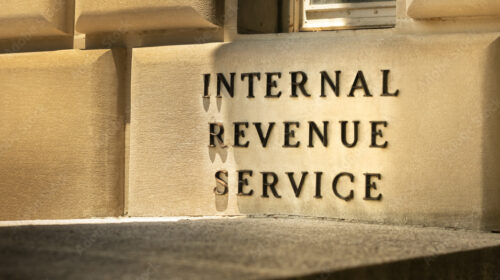IRS Relief Now available to Hurricane Debby Victims

The Internal Revenue Service announced tax relief for individuals and businesses in five states affected by Hurricane Debby.
Affected taxpayers in South Carolina, North Carolina, Florida, Georgia, and Vermont now have until Feb. 3, 2025, to file various federal individual and business tax returns and make tax payments.
The IRS is offering relief to any area designated by the Federal Emergency Management Agency. Currently, this applies to:
- All 14 counties in Vermont
- All 46 counties in South Carolina
- The following 61 counties in Florida: Alachua, Baker, Bay, Bradford, Brevard, Calhoun, Charlotte, Citrus, Clay, Collier, Columbia, DeSoto, Dixie, Duval, Escambia, Flagler, Franklin, Gadsden, Gilchrist, Glades, Gulf, Hamilton, Hardee, Hendry, Hernando, Highlands, Hillsborough, Holmes, Jackson, Jefferson, Lafayette, Lake, Lee, Leon, Levy, Liberty, Madison, Manatee, Marion, Monroe, Nassau, Okaloosa, Okeechobee, Orange, Osceola, Pasco, Pinellas, Polk, Putnam, Santa Rosa, Sarasota, Seminole, St. Johns, Sumter, Suwannee, Taylor, Union, Volusia, Walton, Wakulla and Washington.
- The following 55 counties in Georgia: Appling, Atkinson, Bacon, Ben Hill, Berrien, Brantley, Brooks, Bryan, Bulloch, Burke, Camden, Candler, Charlton, Chatham, Clinch, Coffee, Colquitt, Cook, Crisp, Decatur, Dodge, Echols, Effingham, Emanuel, Evans, Glynn, Grady, Irwin, Jeff Davis, Jefferson, Jenkins, Johnson, Lanier, Laurens, Liberty, Long, Lowndes, McIntosh, Mitchell, Montgomery, Pierce, Richmond, Screven, Tattnall, Telfair, Thomas, Tift, Toombs, Treutlen, Turner, Ware, Wayne, Wheeler, Wilcox and Worth
- The following 66 counties in North Carolina: Alamance, Anson, Beaufort, Bertie, Bladen , Brunswick, Camden, Carteret, Caswell, Chatham, Chowan, Columbus, Craven, Cumberland, Currituck, Dare, Davie, Davidson, Duplin, Durham, Edgecombe, Forsyth, Franklin, Gates, Granville, Greene, Guilford, Halifax, Harnett, Hertford, Hoke, Hyde, Johnston, Jones, Lee, Lenoir, Martin, Montgomery, Moore, Nash, New Hanover, Northampton, Onslow, Orange, Pamlico, Pasquotank, Pender, Perquimans, Person, Pitt, Randolph, Richmond, Robeson, Rockingham, Sampson, Scotland, Stokes, Surry, Tyrrell, Vance, Wake, Warren, Washington, Wayne, Wilson and Yadkin
Individuals and households that reside or have a business in any one of these localities qualify for tax relief. The same relief will be available to any other counties added later to the disaster area. The current list of eligible localities is always available on the Tax relief in disaster situations page on IRS.gov.
Filing and payment relief
The Feb. 3, 2025, deadline will now apply to:
- Any individual, business or tax-exempt organization that has a valid extension to file their 2023 federal return. The IRS noted, however, that payments on these returns are not eligible for the extra time because they were due last spring before the hurricane occurred.
- Quarterly estimated income tax payments normally due on Sept. 16, 2024, and Jan. 15, 2025.
- Quarterly payroll and excise tax returns normally due on Oct. 31, 2024, and Jan. 31, 2025.
The Disaster assistance and emergency relief for individuals and businesses page has details on other returns, payments and tax-related actions qualifying for relief during the postponement period.
The IRS automatically provides filing and penalty relief to any taxpayer with an IRS address of record located in the disaster area. These taxpayers do not need to contact the agency to get this relief.
Additional tax relief
Individuals and businesses in a federally declared disaster area who suffered uninsured or unreimbursed disaster-related losses can choose to claim them on either the return for the year the loss occurred (in this instance, the 2024 return normally filed next year), or the return for the prior year (the 2023 return filed this year). Taxpayers have extra time – up to six months after the due date of the taxpayer’s federal income tax return for the disaster year (without regard to any extension of time to file) – to make the election.
Qualified disaster relief payments are generally excluded from gross income. In general, this means that affected taxpayers can exclude from their gross income amounts received from a government agency for reasonable and necessary personal, family, living or funeral expenses, as well as for the repair or rehabilitation of their home, or for the repair or replacement of its contents.
Additional relief may be available to affected taxpayers who participate in a retirement plan or individual retirement arrangement (IRA). For example, a taxpayer may be eligible to take a special disaster distribution that would not be subject to the additional 10% early distribution tax and allows the taxpayer to spread the income over three years. Taxpayers may also be eligible to make a hardship withdrawal. Each plan or IRA has specific rules and guidance for their participants to follow.
The tax relief is part of a coordinated federal response to the damage caused by these storms and is based on local damage assessments by FEMA. Please reach out to your accounting professional if you have any questions.
Source: IRS.gov